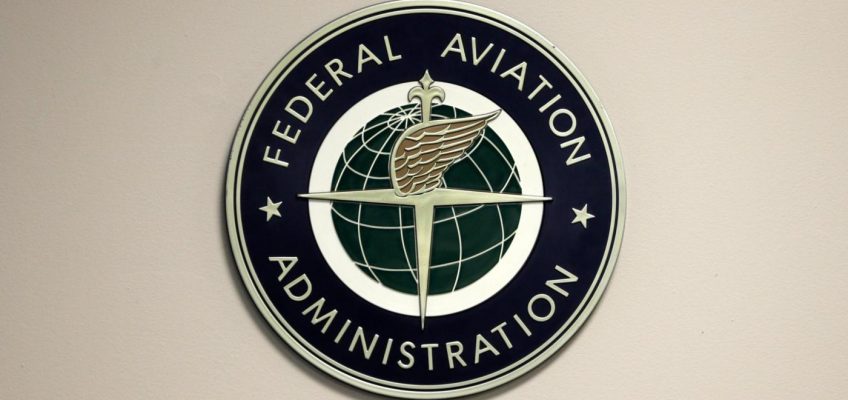By BYRON TAU and BERNARD CONDON
WASHINGTON (AP) — A satellite company owned by Elon Musk has the inside track to potentially take over a large federal contract to modernize the nation’s air traffic communications system.
Related Articles
Coca-Cola’s appeal to Palestinians fizzles as the Mideast war boosts demand for a local look-alike
R.I.P. CFPB? What’s at stake if the watchdog agency goes dark
Hungry mortgage lenders are dangling deals and discounts
SBA administrator orders regional offices to exit “sanctuary cities”
How one startup wants to bring an innovative solution to the plastic bag problem
Equipment from Musk’s Starlink has been installed in Federal Aviation Administration facilities as a prelude to a takeover of a $2 billion contract held by Verizon, according to government employees, contractors and people familiar with the work.
Musk said that the network used by air traffic controllers is aging and requires drastic and quick action to modernize it.
“The Verizon system is not working and so is putting air travelers at serious risk,” Musk on Monday posted on X, the social media site he has owned since 2022.
The emergence of Starlink as a potential replacement for the Verizon-led effort underscores the extraordinary conflicts of interest inherent in Musk’s position as both a senior White House adviser to President Donald Trump and a business mogul in charge of a sprawling array of companies. It is not clear what role Musk might be playing in helping Starlink parent company SpaceX win such business.
“There’s very limited transparency,” said Jessica Tillipman, a contracting law expert at George Washington University. Referring to Musk, she said: “Without that transparency, we have no idea how much non-public information he has access to or what role he’s playing in what contracts are being awarded.”
Former FAA officials also told The Associated Press that they were alarmed at the prospect of Starlink being used as a critical part of the nation’s aviation system without adequate testing, review and debate about its benefits and drawbacks.
SpaceX is angling to use its constellation of satellites to replace an aging ground-based communications system that facilitates the FAA’s text and voice communication, the sources said. The Verizon contract, awarded in 2023, was to update part of that system to a more modern standard relying on fiber optic cables.
Contracting records show that nearly $200 million in work has already been done on Verizon’s 15-year modernization effort to update the FAA’s communications system. A Verizon representative said the company is unaware that the contract is being amended or terminated.
The FAA announced on X on Monday that the agency is testing a Starlink terminal at its facility in Atlantic City and two terminals at “non-safety critical sites” in Alaska. Terminals are ground-based receivers that connect devices or computers to orbiting satellites.
Another FAA contractor, L3 Harris, confirmed it was responsible for acquiring and testing Starlink terminals for incorporation into the FAA’s telecommunications infrastructure network. An L3 Harris spokesperson said the company has been working with SpaceX on the initiative for many months.
Bloomberg News reported earlier about the FAA installing Starlink terminals at its facilities.
Details about SpaceX employees deployed to work on the project are unclear, but three of its software developers appeared on a Trump administration list of government workers given “ethics waivers” to do work that could benefit Musk’s company.
Government ethics laws require that people who could profit from government work either recuse themselves from specific projects or first sell their financial holdings or sever ties with the company that could benefit. Waivers can be granted by the heads of government departments or other officials, but only in limited circumstances.
Ted Malaska, a senior director of application software at SpaceX, got a waiver along with two software engineers, Brady Glantz and Thomas Kiernan, according to the waiver list and LinkedIn profiles. The AP could not determine if the three are still working for SpaceX or the precise nature of work for the federal government.
Malaska posted on social media on Thursday that he had been meeting at FAA headquarters with officials responsible for implementation of the telecommunications modernization.
The FAA contract is not Musk’s only conflict. His acolytes have also taken over many of the operations at the General Services Administration, which controls real estate and contracting for numerous government agencies. GSA currently offers other agencies the ability to launch payloads through an existing SpaceX contract —- putting the agency in a position to direct business toward Musk. The Department of Transportation regulates aspects of SpaceX and his electric car company Tesla. NASA and the Department of Defense are major customers of SpaceX. His brain-computer interface company Neuralink has regulatory issues in front of the U.S. Food and Drug Administration.
AP writer Kimberly Kindy contributed from Washington.




